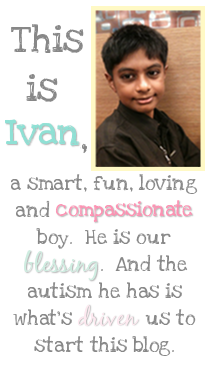Here's the part 2 of the article I started on Speech Language Disorder. As the topic is very wide and there are many sub-categories to cover, I figured I would start off by giving you the signs to look out for.
Here are some signs and symptoms to look out for:
- articulation impairments
- awkward and clumsy physically
- delayed first words with many sounds omitted or replaced by easy-to-pronouce consonant sounds
- difficulty imitating sounds and words
- difficulty understanding spoken language
- difficulty with nursing or feeding during infancy
- distractibility
- fine motor problems
- groping for words while speaking
- grunting instead of using first words
- handwriting problems
- high frequency of vowels and voicing errors
- history of ear infections
- improper use of words
- inability to express ideas
- inability to follow verbal directions from ages 2-3
- inapporpriate grammatical patterns
- inappropriate responses to simple questions from ages 2-3
- inattention to spoken language
- late onset of first words
- learning disabilities
- little or no cooing or babbling in infancy
- not using two-word phrases by 24 months
- pointing instead of using first words
- poor organizational skills
- reduced vocabulary
- repeating words and phrases but not comprehending them
- saying easy sounds (b, m, p, t, d, and h) from ages 2 to 3 but unable to use them in words
- seeing a word but not understanding its meaning
- sensory problems, such as being sensitive to touch
- slow, halting speech that is full of effort
- slow or no progress with traditional speech therapy
- trouble getting across what they are trying to say
- unable to use consonants
- unintelligible speech
- unpredictable speech errors
- voice fluency not present
I hope that you would use these pointers as an objective marker. Should you think that your child shows about half the symptoms here, please try to get hold of a Speech Pathologist, to advice you.
Book: Alphabet Kids: From ADD to Zellweger Syndrome by Robbie Woliver





















No comments:
Post a Comment